-
 Arsenal villain Martinelli turns FA Cup hat-trick hero
Arsenal villain Martinelli turns FA Cup hat-trick hero
-
Syrians in Kurdish area of Aleppo pick up pieces after clashes

-
 Kohli hits 93 as India edge New Zealand in ODI opener
Kohli hits 93 as India edge New Zealand in ODI opener
-
Trump tells Cuba to 'make a deal, before it is too late'

-
 Toulon win Munster thriller as Quins progress in Champions Cup
Toulon win Munster thriller as Quins progress in Champions Cup
-
NHL players will complete at Olympics, says international ice hockey chief

-
 Leeds rally to avoid FA Cup shock at Derby
Leeds rally to avoid FA Cup shock at Derby
-
Rassat sweeps to slalom victory to take World cup lead

-
 Liverpool's Bradley out for the season with 'significant' knee injury
Liverpool's Bradley out for the season with 'significant' knee injury
-
Syria govt forces take control of Aleppo's Kurdish neighbourhoods

-
 Comeback kid Hurkacz inspires Poland to first United Cup title
Comeback kid Hurkacz inspires Poland to first United Cup title
-
Kyiv shivers without heat, but battles on

-
 Salah and fellow stars aim to deny Morocco as AFCON reaches semi-final stage
Salah and fellow stars aim to deny Morocco as AFCON reaches semi-final stage
-
Mitchell lifts New Zealand to 300-8 in ODI opener against India

-
 Malaysia suspends access to Musk's Grok AI: regulator
Malaysia suspends access to Musk's Grok AI: regulator
-
Venezuelans await release of more political prisoners, Maduro 'doing well'

-
 Kunlavut seals Malaysia Open title after injured Shi retires
Kunlavut seals Malaysia Open title after injured Shi retires
-
Medvedev warms up in style for Australian Open with Brisbane win

-
 Bublik powers into top 10 ahead of Australian Open after Hong Kong win
Bublik powers into top 10 ahead of Australian Open after Hong Kong win
-
Sabalenka fires Australian Open warning with Brisbane domination

-
 In Gaza hospital, patients cling to MSF as Israel orders it out
In Gaza hospital, patients cling to MSF as Israel orders it out
-
New protests hit Iran as alarm grows over crackdown 'massacre'

-
 Svitolina powers to Auckland title in Australian Open warm-up
Svitolina powers to Auckland title in Australian Open warm-up
-
Keys draws on happy Adelaide memories before Australian Open defence

-
 Scores of homes razed, one dead in Australian bushfires
Scores of homes razed, one dead in Australian bushfires
-
Ugandan opposition turns national flag into protest symbol

-
 Bears banish Packers, Rams survive Panthers playoff scare
Bears banish Packers, Rams survive Panthers playoff scare
-
'Quad God' Malinin warms up for Olympics with US skating crown

-
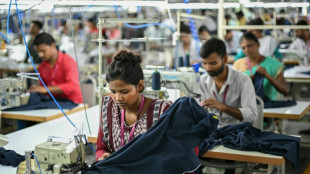 India eyes new markets with US trade deal limbo
India eyes new markets with US trade deal limbo
-
Syria's Kurdish fighters agree to leave Aleppo after deadly clashes
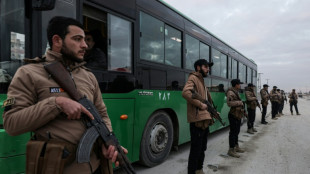
-
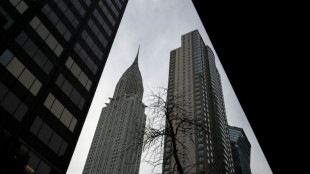 New York's Chrysler Building, an art deco jewel, seeks new owner
New York's Chrysler Building, an art deco jewel, seeks new owner
-
AI toys look for bright side after troubled start

-
 AI pendants back in vogue at tech show after early setback
AI pendants back in vogue at tech show after early setback
-
Grateful Dead co-founder and guitarist Bob Weir dies aged 78

-
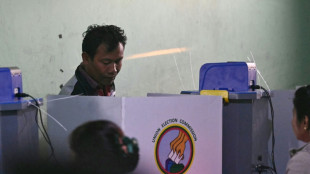 Myanmar votes in second phase of junta-run election
Myanmar votes in second phase of junta-run election
-
'One Battle After Another' heads into Golden Globes as favorite

-
 Rams survive Panthers scare to advance in NFL playoffs
Rams survive Panthers scare to advance in NFL playoffs
-
Rallies across US after woman shot and killed by immigration agent
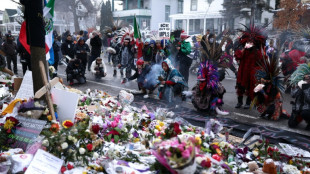
-
 Pre-JPM Investor Pulse Signals 2026 Capital Rotation Toward "AI That Ships," Admin Cost Takeout, and Differentiated Metabolic Assets With Special-Situations Capital Back in Scope
Pre-JPM Investor Pulse Signals 2026 Capital Rotation Toward "AI That Ships," Admin Cost Takeout, and Differentiated Metabolic Assets With Special-Situations Capital Back in Scope
-
Egypt dump out holders Ivory Coast as Nigeria set up AFCON semi with Morocco

-
 Rosenior salutes 'outstanding' start to Chelsea reign
Rosenior salutes 'outstanding' start to Chelsea reign
-
Maduro loyalists stage modest rally as Venezuelan govt courts US
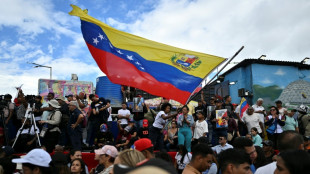
-
 Rosenior makes flying start as Chelsea rout Charlton in FA Cup
Rosenior makes flying start as Chelsea rout Charlton in FA Cup
-
Rallies across US against shooting of woman by immigration agent
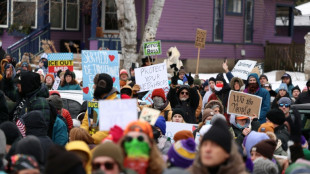
-
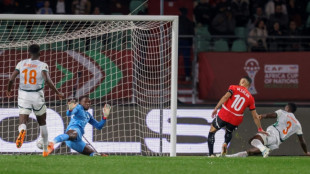 Salah closer to AFCON glory as Egypt dethrone champions Ivory Coast
Salah closer to AFCON glory as Egypt dethrone champions Ivory Coast
-
O'Neil ends 'crazy three days' with Strasbourg cup canter

-
 Mitchell leads Cavs over T-Wolves
Mitchell leads Cavs over T-Wolves
-
O'Neil ends 'crazy few days' with Strasbourg cup canter

-
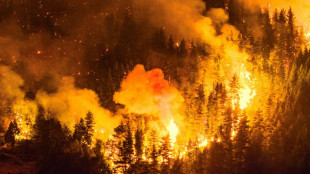 Argentina wildfire burns over 5,500 hectares: governor
Argentina wildfire burns over 5,500 hectares: governor
-
Byrne late penalty fires Leinster into Champions Cup last 16

After Kirk: Speech at Risk
The killing of Charlie Kirk at a public campus event has sent shock waves through the United States and far beyond. It was not only the murder of a high‑profile activist in full view of students; it was an attack on the premise that contentious ideas can be debated in open air without fear. Authorities say a young man has been taken into custody, and investigators have not publicly established a motive. The urgency and breadth of the response—from law enforcement, universities, policymakers and tech platforms—make clear that this is a pivot point for how democracies balance security, speech and civic peace.
Campus speech under a new security regime
Kirk’s signature format—unscripted outdoor debates that drew both supporters and critics—now looks like a security planner’s worst case. In the days since the shooting, elected officials and campus leaders have begun moving events indoors, postponing rallies, and reassessing perimeter control, rooflines, and vantage points. Expect a rapid shift away from spontaneous outdoor gatherings toward credentialed, magnetometer‑protected forums with controlled ingress and overwatch. That will keep more people safe. It will also narrow the public square: fewer ad‑hoc debates, more ticketed events, more distance—literal and figurative—between speakers and the people who would challenge them.
The information war: virality, moderation and hoaxes
Footage of the shooting spread instantly across major platforms. Within hours, game platforms and social networks were forced to remove content that trivialized or re‑enacted the killing. Alongside the genuine evidence came a familiar wave of misinformation: recycled images falsely identifying the shooter; out‑of‑context videos; and speculative narratives that hardened into tribal “truths” before investigators could brief the public. This cycle—violence, virality, platform triage, and rumor—now shapes public understanding of political crime. The likely consequence is more aggressive emergency moderation rules for graphic content and for posts that glorify or game‑ify real‑world attacks. That, in turn, will revive older debates about who decides what counts as “glorification,” and whether private enforcement against certain kinds of speech chills legitimate reporting or commentary.
Condemnation is broad; polarization remains
The killing drew rapid denunciations from across the political spectrum and from leaders overseas. Yet the same feeds that carried condolences also carried celebrations and taunts from a small but visible fringe. University communities abroad were forced to distance themselves from individuals who appeared to cheer the violence. This is the paradox of the moment: mainstream figures on the left and right condemned the assassination, but the incentives of online life still reward performative cruelty. For conservatives, the episode reinforces what many already believe—that tolerance on the contemporary left often ends where non‑left ideas begin. For many progressives, the fear is that any backlash will be used to muzzle dissent, not to protect dialogue. Both narratives will harden; neither will reduce risk on their own.
Policy whiplash: security first, speech later
In Washington and in state capitals, the immediate response is security‑first: improving event protection, tightening coordination between campus police and federal agencies, and closing obvious gaps in venue hardening. Expect committees to examine rooftop access, “line‑of‑sight” risks, and crowd screening standards for non‑government speakers whose events attract opposition. There are early signals, too, of measures aimed at those who praise or trivialize political violence—especially from outside the country—through visa scrutiny and other tools. While such steps may be lawful and defensible, they raise enduring questions: Where does punishing incitement end and punishing opinion begin? And who gets to draw that line at Internet speed?
Universities at the fault line
American campuses will bear the brunt of the near‑term change. Student groups will be asked to accept more intrusive security rules. Open‑air forums may be curtailed. Insurance and legal counsel will push institutions toward lower‑risk formats. Ironically, some of these moves will reduce the very exposure that made Kirk’s events attractive to his supporters: the willingness to be confronted, in public, by critics. Whether universities can design spaces that are both truly open and genuinely safe will be a defining governance challenge of the academic year.
Global ripples
Abroad, leaders framed the killing as an assault on democratic norms and free inquiry. In Europe, it has already fed arguments about whether the rhetoric of American culture‑war politics is compatible with campus safety and pluralism. Expect more speech‑restrictive proposals in some jurisdictions, sharper scrutiny of U.S. speakers invited to foreign universities, and tighter platform enforcement against posts that celebrate political violence. At the same time, expect right‑of‑center parties to argue that tolerant societies must be intolerant of those who try to silence opponents by force.
What changes next - Three shifts now look likely:
1) Hardened venues, fewer spontaneous debates. Event organizers will accept higher costs and less spontaneity to reduce risk.
2) Stricter emergency moderation. Platforms will move faster to throttle “glorification” content, with new escalation paths for law enforcement and public officials.
3) A sharper line between words and violence. Political leaders are already insisting that speech—even harsh speech—must remain legal, while violence must be punished swiftly and severely. Whether that principle is applied evenly will determine whether this moment de‑escalates or further radicalizes the culture.
Kirk’s killing will not end the argument over speech; it will intensify it. If institutions respond by protecting debate while resisting the impulse to criminalize mere offense, the public square may emerge narrower but sturdier. If, instead, security becomes a pretext to police ideology, the assassination will have succeeded in shrinking the space where disagreeable ideas can be aired without fear.
The extreme left-wing scene in particular, as it exists in the Federal Republic of Germany, fuelled by a completely mindless gender craze coupled with ideological green agitation, leaves one speechless and demonstrates the downright anti-social brutalisation in Europe. Anything that does not share the same opinion must be met with decisive harshness, because democracy, no matter where on our planet, must not be intimidated by such undemocratic behaviour!

Mike Pence: U.S. will continue to support Ukraine

Activists organise "flotilla" with aid for Gaza

Holy souls on display at 2024 Venice Biennale

Brussels, my Love? EU-Market "sexy" for voters?

The great Cause: Biden-Harris 2024

UN: Tackling gender inequality crucial to climate crisis

Scientists: "Mini organs" from human stem cells

ICC demands arrest of Russian officers

Europe and its "big" goals for clean hydrogen

Putin and the murder of Alexei Navalny (47†)

Measles: UK authorities call for vaccinate children



